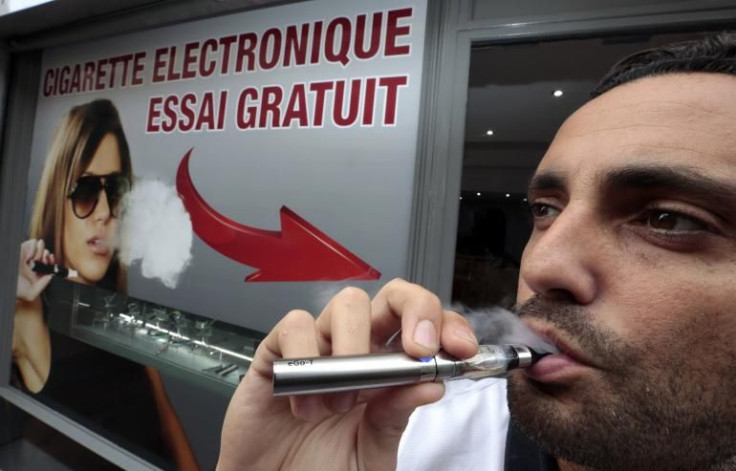Chicago E-Cigarette Ban: Windy City May Become First US City To Ban Popular Devices In Public Areas

The city of Chicago is on the verge of banning electronic cigarette smoke in public areas as part of a push to help children quit smoking or prevent them from ever buying their first pack. The proposal, headed up by Mayor Rahm Emanuel, would make Chicago the first city in the United States to ban E-cigarette use in public places, if it is approved.
“This is part of our overall strategy to address the impact of tobacco on youth. We’ve seen a decrease in youth smoking, then a plateau. We really need to break that plateau,” City Health Commissioner Dr. Bechara Choucair told the Chicago Sun-Times. “We know that adolescent smokers use flavored products. That’s how Big Tobacco gets these kids addicted. They lure them in with these colorful packing and sweet flavors. They pick up these cigarettes, and that’s how they become lifelong addicts.”
According to the Centers for Disease Control and Prevention, 88 percent of current adult smokers admit to picking up the habit by the age of 18. Although youth smoking has been on a decline since the end of the 1990s, 20 percent of high school students still report smoking at least one cigarette within a 30-day period. Around 4,000 teenagers younger than 18 try their first cigarette each day, and close to half will die as a result of their habit.
With the help of lawmakers and city healthcare officials, Mayor Emanuel asked members of the City Council to consider banning the use of E-cigarettes in public areas where regular tobacco products are already prohibited. The amendment to an existing ordinance that regulates public tobacco use will also bar the sale of menthol and flavored tobacco products within 500 feet of a school zone.
The ban was brought before the Chicago City Council this past Tuesday, and will be reviewed before it goes to a vote in December. The sale of E-cigarette products would also be limited to retailers who apply for a sales license and would require products to be sold from behind the counter. Mayor Emanuel’s request was meant to coincide with a 75-cent tax increase on tobacco products that has been included in the 2014 budget. If it gains the city council’s approval, the ban would go into effect starting Jan. 2014.
Published by Medicaldaily.com



























